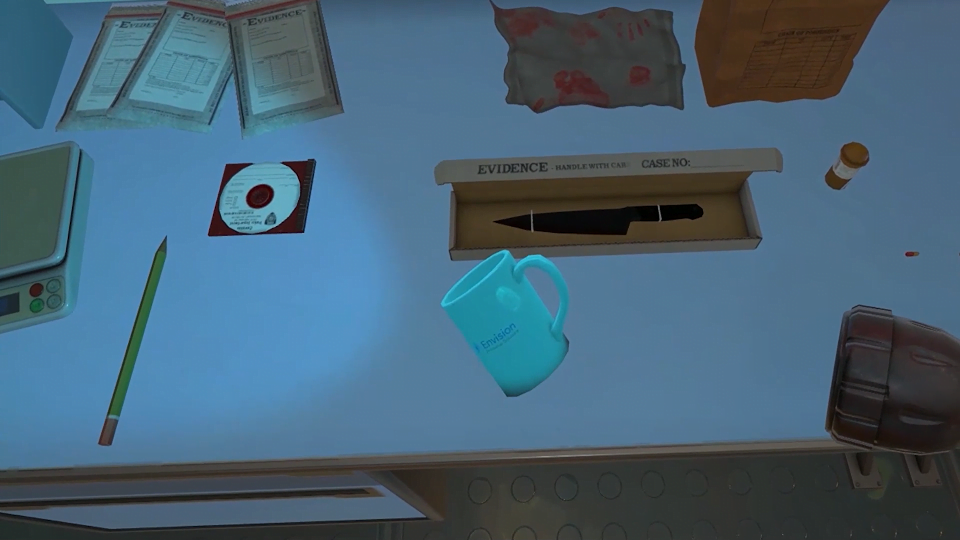Envision is proud to announce our selection to develop a Virtual Reality (VR) Simulator for Mercer County Technical School’s Law and Public Safety Program, for use in its forensic science course administered at the MCTS Sypek Center in Pennington, NJ. Up until now, MCTS’s forensic science courses utilized a physical room containing physical props and mannequins to simulate forensic crime scenes. This configuration results in the following issues:
- It is challenging to use physical simulation while attempting to convey an actual realistic crime scene. Lots of real-world distractions are not reproduced for the student trainee.
- It is challenging to replicate fatal injuries and wounds to the point where it actually desensitizes student trainees who will likely encounter nauseating “shock factor” circumstances at a forensic crime scene.
- Physical classroom forensic simulation is open to distractions from other students, general school noise, hallway noise, etc.
Envision will develop a unique and immersive VR forensic crime scene and a forensic crime lab experience. The VR crime scene will feature rich and complex 360-degree 3D background environment with ultra-realistic color, texturing, lighting, shadowing, and noise.
Envision will implement an innovative menu system of tools for the VR investigator to use such as an in-VR experience camera, a magnifying glass, crime scene tape to measure and cut, proper evidence containers for both wet and dry evidence, measuring devices, ground chalk, headlamp, gloves, cast trays, casting material, and other “red herring” distractions. The user will access this tool menu using innovative VR info panels. The VR experience will be 6 Degrees of Freedom (6Dof) which will allow the user to physically walk around within a pre-defined physical barrier space to collect evidence.
Once the user has collected all of the evidence, they will proceed to the VR forensic crime lab. Inside the VR crime lab, the user will be presented with a different set of tools such as ultraviolet fingerprint flashlights, memory card readers, DNA storage bins, and a virtual PC to view the photographs they took while in the VR experience. Students will analyze evidence such as tire skid marks, off-road tire imprints (cast modeling), and then formulate a conclusive automotive make, model, etc. using classroom-taught forensic analysis. All actions of the entire VR forensic simulator experience will be logged and sent to the instructor for post-exercise evaluation.
The VR experience will convey an immersive and realistic forensic crime scene experience for the student trainee. They will be exposed to unsightly gore that they will someday likely encounter at a real forensic crime scene. They will be shut off from outside distraction—keeping them highly focused on their experience and tasking which ultimately will increase knowledge retention and student examination performance.

